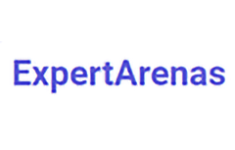Your AI-Powered Health & Wellness Companion for Mood, Mind & Motivation
Track. Predict. Improve. Manage your health, emotions, and medical history effortlessly with AI.
See AI in Action

TinyBit AI, born from CloudBlue’s vision for inclusive innovation, started by supporting individuals with learning differences and has grown to help everyone manage emotional and mental well-being.
Bringing wellness to your fingertips, TinyBit AI understands your moods and provides gentle guidance to help you navigate daily challenges, reflect on your emotions, and build mindful habits. Always empathetic and available, it empowers you to bring calm, clarity, and balance to everyday life.
Step into mindful living with TinyBit AI
Know MoreActive Users
Posts Generated
Impressions





















































































Founder TinyBit, Co-Founder Cloudblue
Krish is dedicated to creating innovative technology solutions that make a meaningful impact. His passion for addressing the unique challenges faced by individuals with learning difficulties was sparked during his teenager time at an International School in Belgium, renowned for its strong focus on inclusion and integration. This experience offered him invaluable insights into the struggles faced by individuals with cognitive disabilities, not only academically but also in their daily lives. His journey led him to conceptualize and launch CloudBlue‘s first product, TinyBit, in 2023, aimed at enhancing the comfort and well-being of individuals with...learn more

Founder Cloudblue & Co-Founder TinyBit
Nitin, founder of PlanB First Ltd, Technocrat Communications, BSS Africa and CloudBlue, has over 25 years of professional experience in IT industry...learn more

CTO TinyBit, Co-Founder & CEO TinyBit AI India
Krishna Puranik is a strategic Tech Consultant & Digital Marketing Consultant for over 60 fast-growing companies in need of scalable web and...learn more

The domain of cognitive disabilities is vast and complex, requiring extensive research and valuable input from experts who work closely with individuals and their families. At TinyBit, we are incredibly grateful to have some of the industry’s leading experts as our advisors and mentors. Their guidance has been instrumental in helping us leverage technology to develop impactful solutions touching lives of people on a daily basis.
As we strive to connect the world and create a more inclusive and supportive environment for everyone, we look forward to expanding our mentor network. We welcome the support of experts globally, whose unique experiences and insights will further enrich our mission and help us make a greater difference.

Alan brings over 27 years of experience and has a BA in psychology, MEd in special education, and an EdS in school (educational) psychology. He holds USA licensure as both a special...learn more

Kristen Pelletier is an educational consultant, coach, and leader of professional learning. She is driven by a mission to support international schools around the world along their journeys toward inclusive cultures of...learn more

Renato is currently the College Principal at Phoenix College, London and has worked in education settings for the last 24 years, with experience in primary, secondary, post-16 and adult settings. For the...learn more

Erin Colleen Pedder is Intensive Learning Support Teacher. Her professional background in the field of Special Education has been spent in both the private and public sectors in the United States and...learn more

Nitesh Solanki is dedicated to advancing the welfare of individuals with Intellectual and Multiple Disabilities. With an illustrious career spanning over 30 years, he has made significant contributions to the field of...learn more
